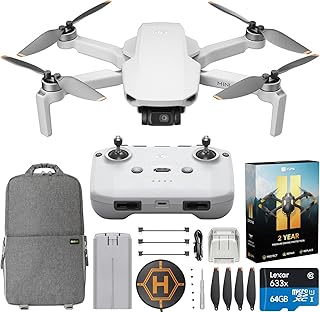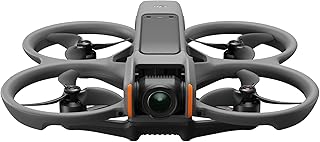DJI Drones for Agriculture: Monitoring Crops and Optimizing Yields
DJI drones are revolutionizing agriculture by providing farmers with powerful tools to monitor crops, identify issues, and optimize yields. Here's how they're making a difference:
1. Precision Monitoring:
* Aerial Imagery: Drones capture high-resolution images and videos of fields, providing a bird's-eye view of crop health, growth patterns, and potential issues.
* Multispectral and Hyperspectral Imaging: Specialized cameras capture light in different wavelengths, revealing hidden information about crop stress, nutrient deficiencies, and disease outbreaks.
* Thermal Imaging: Drones detect temperature variations within the field, highlighting areas with water stress, disease, or pest infestations.
2. Data Analysis and Insights:
* Software Integration: DJI drones are compatible with user-friendly software platforms that analyze captured data, creating maps, reports, and insights.
* Early Detection: Farmers can identify problems like pests, diseases, and nutrient deficiencies at early stages, allowing for timely intervention and minimizing potential losses.
* Data-Driven Decision-Making: Real-time data empowers farmers to make informed decisions about irrigation, fertilization, and pest control, leading to improved resource management and higher yields.
3. Efficient Operations:
* Time and Cost Savings: Drones can survey vast fields much faster and more efficiently than traditional methods, saving time and resources.
* Reduced Environmental Impact: Drones minimize the need for manual inspections, reducing soil compaction and pesticide use.
* Remote Monitoring: Farmers can remotely monitor their fields from anywhere with an internet connection, allowing for proactive management and timely responses to issues.
4. Applications in Specific Areas:
* Yield Forecasting: Drones help estimate yield potential based on crop health and growth patterns.
* Precision Irrigation: By identifying water stress areas, drones optimize irrigation schedules, reducing water consumption and maximizing crop production.
* Pest and Disease Control: Drones equipped with sprayers can accurately target specific areas, minimizing pesticide use and environmental impact.
5. Challenges and Future Potential:
* Regulation and Safety: Drone usage in agriculture needs to comply with local regulations and safety protocols.
* Data Storage and Security: Managing large amounts of data and ensuring its security are crucial aspects.
* Integration with other Technologies: Combining drone data with other technologies like sensors, weather stations, and farm management software will further enhance agricultural operations.
Overall, DJI drones are proving to be invaluable tools for modern agriculture, enabling farmers to improve efficiency, optimize resource use, and ultimately increase yields.
As technology continues to advance, we can expect even more innovative applications of drones in agriculture, leading to a more sustainable and productive future for the industry.


